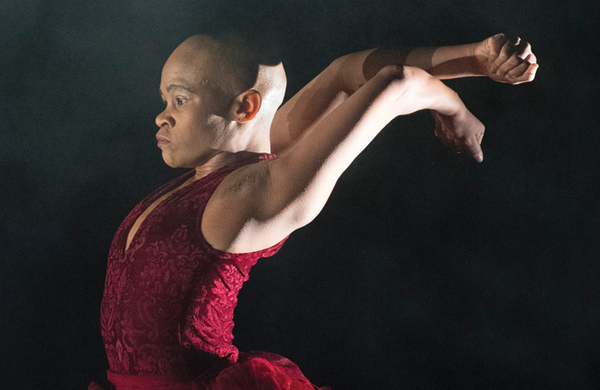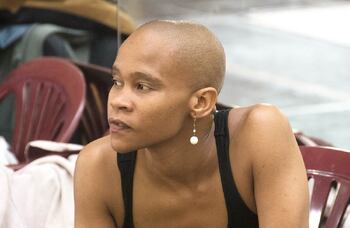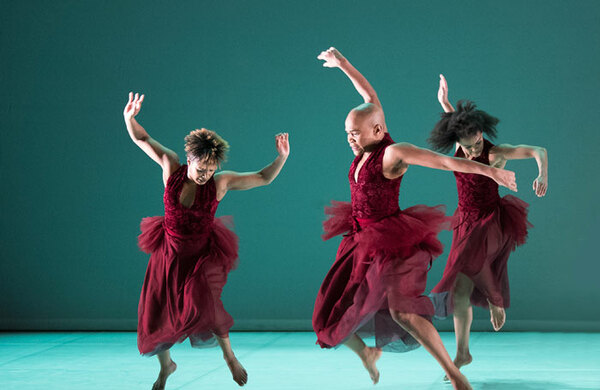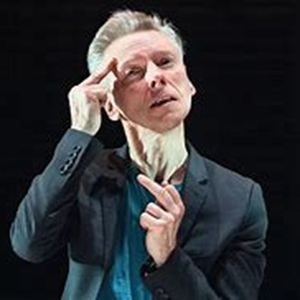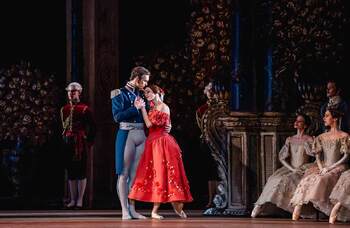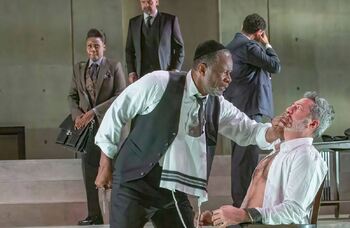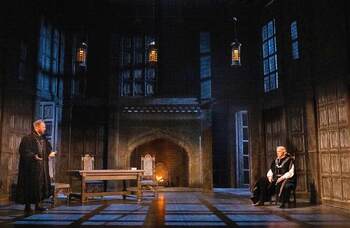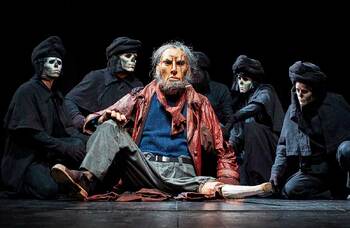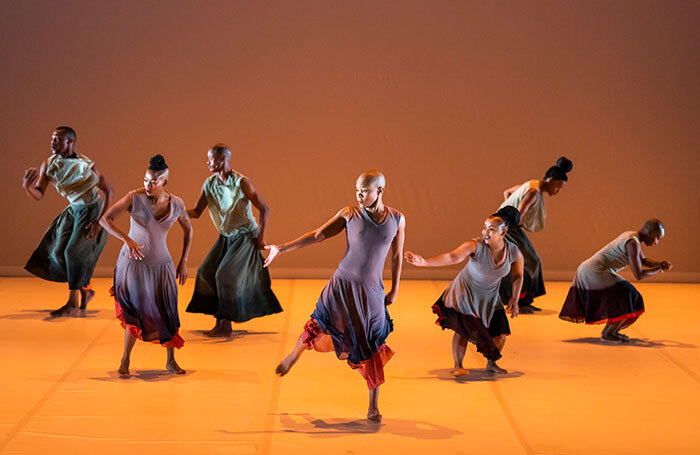
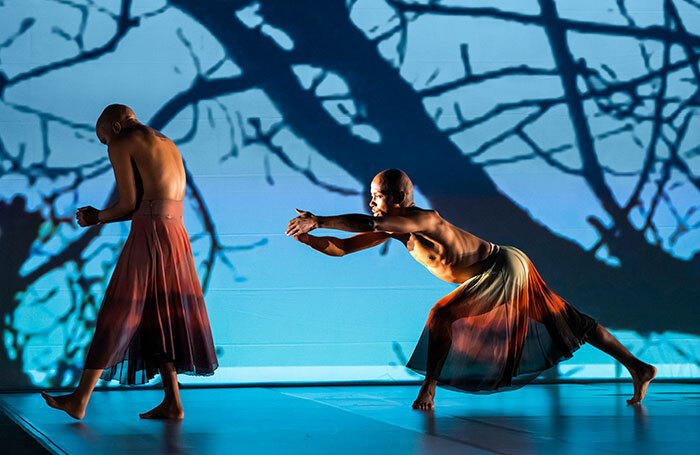
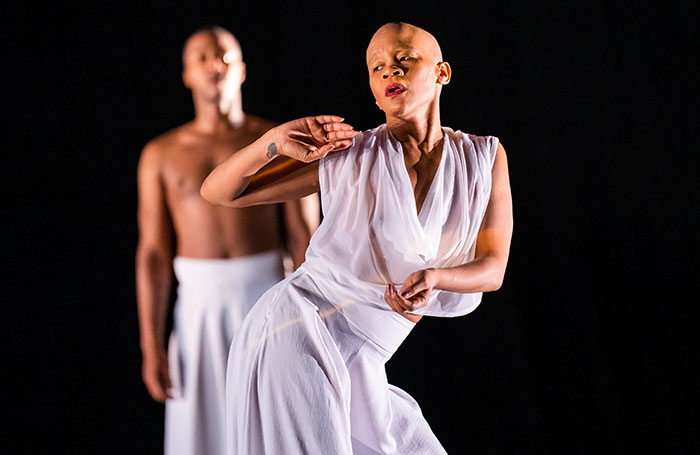
A bold, refreshing yet dramaturgically murky South African take on The Rite of Spring
Premiered almost 110 years ago in Paris, and set to one of the most thrilling scores in dance history, The Rite of Spring has since become a rite of passage for choreographers. It is estimated that more than 150 versions have been created. Presented in the UK by the Dance Consortium, the South African choreographer Dada Masilo’s The Sacrifice has to be one of the more refreshing. Drawing upon African ritual and cultural traditions, including the highly rhythmic, expressive folk dance form known as Tswana, the work is kinetically bold and radical – especially in its daring substitution of sometimes rapturous original music, performed live, for Igor Stravinsky’s familiar landmark composition. This touring production has many strengths and a core integrity. What’s missing, crucially, is dramaturgical clarity.
The performance begins with Masilo, bare-breasted in a floor-length pleated skirt, distractedly reaching or swiping as she slowly, deliberately makes her way centre-stage and then exits. The operatically trained Ann Masina enters next, singing as she crosses downstage-left to take her place among three musicians whose skills encompass keyboard, violin and percussion as well as vocals. The presence of this quartet, and the richly textured music they generate, are integral to the ensuing action.
Continues...
Masilo returns, now fully clothed and joined by 10 other barefooted dancers in similarly loose, flowing costumes. Small and shaven-headed, she is the dynamic centrepiece of furious, multi-level ensemble dances that exude a joyous, controlled wildness. Again, much of the scrabbling, breakneck group energy we witness is in direct response to the music. Changes in tempo and tone keep both us and the dancers on high alert.
Having established the sense of a strong onstage community, Masilo then introduces murkier, more troubling shades of drama. Thandiwe Mqokeli has a sudden solo, shaking and rolling on the ground in bewildered distress. As her condition passes like an infection to some of the other dancers, the work takes on an increasingly dark, dream-like mood. Dancers undulate, jump and sweep. Masina’s voice hollers and cries. The tangle of bare branches projected on the backdrop blackens and becomes more dense. Masilo performs a duet with Lwando Dutyulwa that seems both tender and oppressive. He and three other men, all in flowing white trousers, lift and shift her surrendered body. A Pietà-like finale has Masina singing beautifully in lamentation, while supportively embracing the now broken, depleted Masilo.
Masilo’s reimagining of ballet warhorses such as Romeo and Juliet, Swan Lake and Giselle (a knockout production seen in the UK in 2019), reinvigorated from a contemporary African perspective, is laudable. For this work she expressed a desire “to create a story that is deeper than a chosen maiden dancing herself to death”, a reference to the narrative nub of the first Rite and many subsequent incarnations. But, despite its many appealing aspects, the alternative route she takes here left me more confused and emotionally detached than moved and stirred. The audience, however, was on its feet. Judge for yourself.
More Reviews
More Reviews
Recommended for you
Most Read
Across The Stage this weekYour subscription helps ensure our journalism can continue
Invest in The Stage today with a subscription starting at just £5.99
